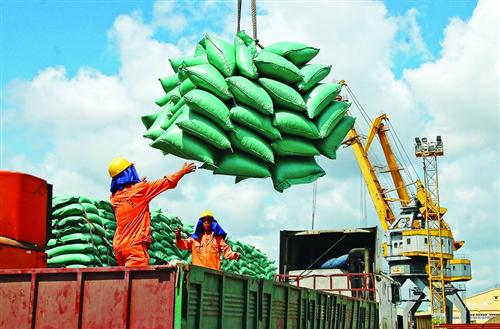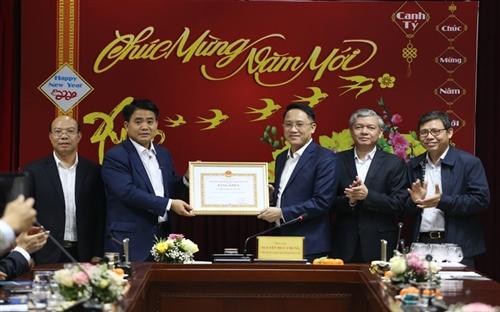Vietnam, Japan to boost trade, tourism, labor ties
Vietnam, Japan to boost trade, tourism, labor ties
Vietnam and Japan continue to seek ways to strengthen cooperation in multiple sectors, while focusing on bilateral trade, tourism and labor initiatives, stated Deputy Prime Minister Vuong Dinh Hue at the opening of seminars and forums on the economy, tourism and labor cooperation between the two countries, held in Danang City on January 13.
Hue, who is also head of the Intersectoral Steering Committee for Economic Integration, noted that the event will be a driving force for stronger ties between the two countries, especially for central Vietnam.
Both Vietnam and Japan support global free trade, Hue was cited by the local media as saying.
Last year, despite global market volatility, Vietnam still obtained positive economic achievements. The country’s macroeconomy was stable, while its inflation was kept under control.
The country welcomed more than 18 million international tourists and was honored as Asia's leading destination for the second consecutive year. Vietnam also saw a trade surplus for the fourth straight year and was among 25 countries with the largest trade value in the world.
It also placed among the top 12 countries for foreign investment attraction and usage, with US$38 billion in foreign investment being pledged into the country last year.
Vietnam is now calling for investment in hi-tech and clean projects that create high added-value products and do not cause environmental pollution.
Deputy PM Hue stressed that the Vietnamese Government has paid significant attention to improving the country’s competitiveness and business model.
The country is drawing up a development plan for the next decade and will amend the Laws on Investment and Enterprises to create favorable conditions for foreign investors, Hue added.
In addition, Vietnam is a member of the Greater Mekong Subregion, which has cooperated closely with Japan on traffic and energy infrastructure; trade facilitation; and manpower connections in association with digital connections. The two sides should continue bolstering their partnership in these three fields, Hue added.
The deputy prime minister confirmed that Vietnam hoped Japan would be its leading, and best, investor.
The country also expected Japan to further open its market to Vietnamese laborers and that Japanese enterprises would help them improve their understanding of the Japanese language and knowledge of local regulations and culture.
In terms of tourism, in 2019, only 900,000 Japanese tourists visited Vietnam, one-third the number of South Korean arrivals.
Deputy PM Hue asked the authorities of localities in both countries to contribute to strengthening bilateral relations.
Speaking at the event, Nikai Toshihiro, secretary general of the Japanese Liberal Democratic Party and chairman of the Japan-Vietnam Friendship Parliamentary Alliance, said Japan has also attached great importance to boosting cooperation with Vietnam, adding that the two countries’ relations have grown substantially in most sectors, including politics, the economy, culture and national defense.
He noted that some 1,900 Japanese enterprises are doing business in Vietnam.
Meanwhile, 370,000 Vietnamese people are living, studying and working in Japan. People who have studied and worked in Japan are considered a bridge, connecting Japanese enterprises in Vietnam with local management agencies and firms, Nikai remarked.
On the same day, Deputy PM Hue and Nikai also attended Vietnamese air carrier Vietjet’s ceremony to launch new air routes from Vietnam’s Hanoi, Danang and HCMC to Japan’s Nagoya, Fukuoka and Kagoshima.























